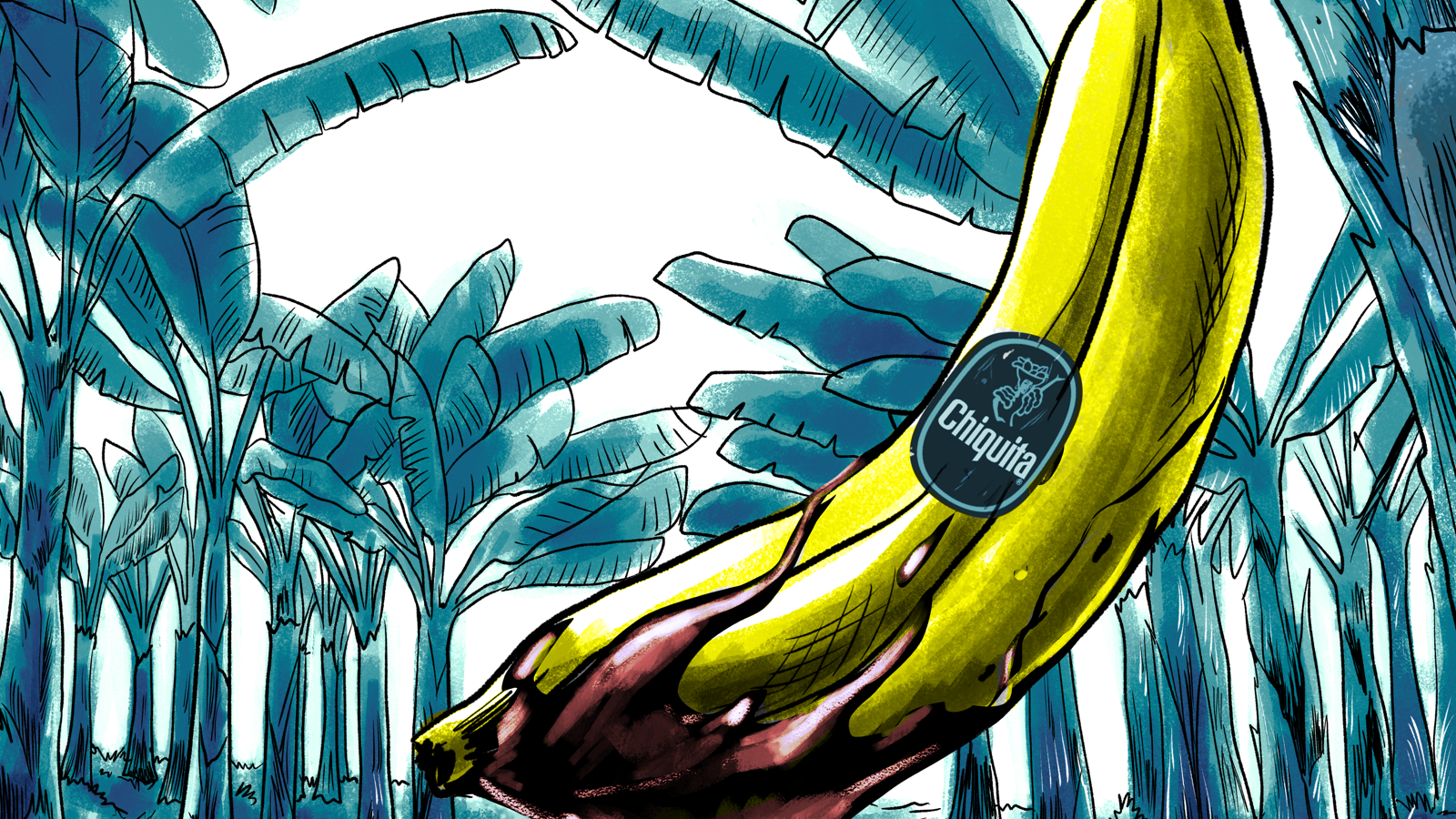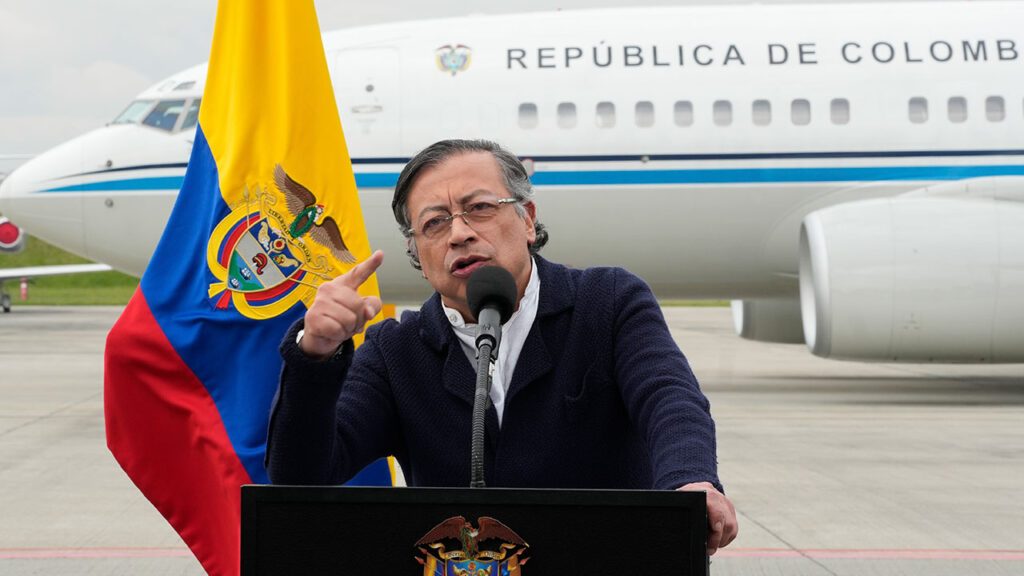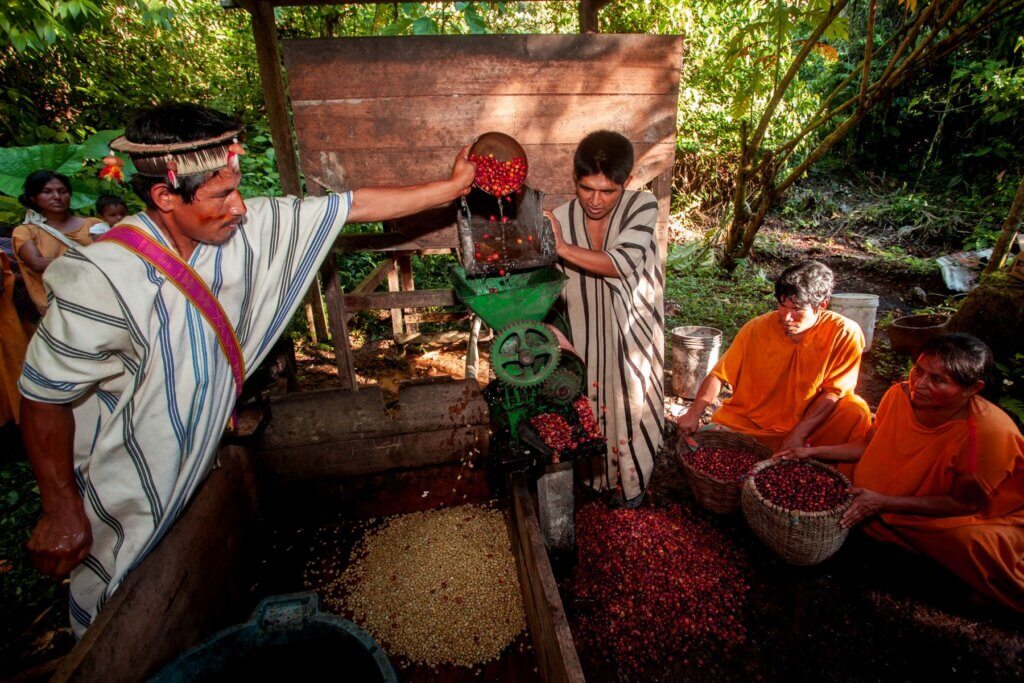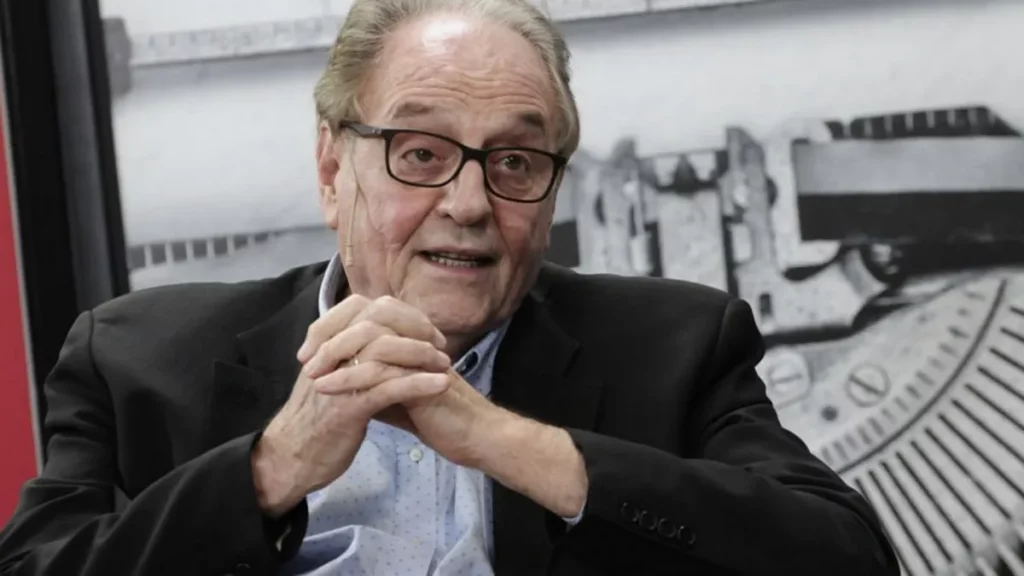Medellín, Colombia – Chiquita Brands International on June 10 was found civilly liable for the murder of eight Colombians at the hands of the United Self Defense Forces of Colombia (AUC), a now-defunct, right-wing paramilitary group that operated in the country.
The jury’s verdict in the lawsuit, which was filed by the victims’ families in Florida in 2007, marks the first time that an American multinational has been found liable for human rights abuses committed outside of U.S. territory.
The decision reaffirms that Chiquita knowingly financed the AUC in pursuit of profit and despite the AUC’s “egregious human rights abuses,” according to EarthRights International, the non-governmental and non-profit organization which represented the victims’ families.
The AUC officially formed in 1997 as an umbrella organization combining disparate paramilitary groups fighting left-wing rebels in Colombia’s countryside. Through financial backing from wealthy landowners, businessmen, as well as former members of Pablo Escobar’s Medellín Cartel, the AUC quickly expanded into traditional guerrilla territories and cities, including by targeting civilians to “break their support of insurgent groups,” according to the Colombian Truth Commission.

Image Source: Jesús Abad Colorado Via the Colombian Truth Commission.
AUC death squads protected cocaine traffickers and ultimately became drug traffickers themselves in order to finance their counter-revolutionary interests, according to the commission. Within the context of the Colombian armed conflict, the AUC was the most brutal actor, accounting for 46% of all civilian deaths, according to data from Colombia’s National Center for Historic Memory published by Colombia Reports.
From 1997 to 2004, Chiquita Brands provided over USD $1.7 million in illegal funding to the paramilitary group and last month were ordered to pay USD $38.3 million in damages to the families of those who were killed, according to Colombian news station RCN Noticias.
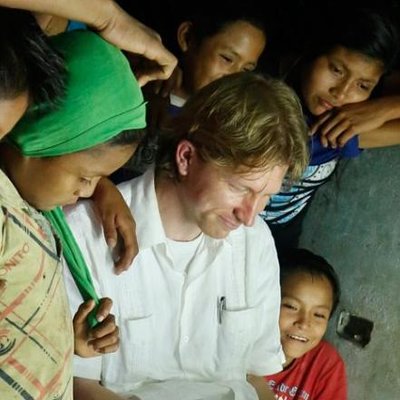
Marco Simons is the General Counsel of EarthRights International, and worked on the case against Chiquita for 17 years. During this time, he supported communities and activists that demanded accountability for the crimes, as well as with the families of the victims who were murdered by the AUC.
Latin America Reports spoke with Simons and asked him about the implications of the case, potential next steps, and any possible precedents the jury’s decision may set for other cases against Chiquita, as well as other multinational companies accused of human rights abuses outside of the U.S.
The below interview has been edited for length and clarity.
Latin America Reports: Can you explain how Chiquita claimed that it had to make the payments to the AUC for protection? How did they explain the murders of the eight victims?
Marco Simons: They didn’t argue directly that (the victims) were guerrilla members or sympathizers, and there wasn’t much evidence for that. What Chiquita did argue was that they were also victims of the AUC and that they were essentially forced to make these payments because the AUC was extorting them. So, their primary argument was that they made those payments in order to save lives.
They basically said that as long as they were operating in Colombia, they had to pay the AUC because they were threatening them. As for why they didn’t want to withdraw from the country, they said that they provided good jobs for people.
I have two responses to that: first, even if it’s all true, legally speaking, it doesn’t matter. At best, all they were doing was ensuring that the AUC wasn’t targeting Chiquita while they continued targeting civilians, committing massacres and such. Under their own theory, they were protecting themselves but in doing so, they were putting other people at risk. This is not legally defensible.
But also, I think that this is not what was happening. The AUC simply did not target American multinational companies because they were not their opposition. Chiquita’s own witnesses admitted that not only were there no specific threats from the AUC to Chiquita, but that they were not aware of any instances where the AUC committed acts of violence against American multinationals.
I can’t say what the jury believed because they didn’t give us a very detailed decision, but we thought that Chiquita’s whole story was not very credible. It made a lot more sense for them to have paid the AUC for protection, knowing full well that the AUC carried out this fight with massive numbers of civilian casualties.
LAR: Did the Chiquita defense insinuate that the eight deaths were accidental in them protecting themselves through the services of the AUC?
MS: They certainly argued that they didn’t intend for anybody to be hurt or killed because of their support to the AUC, and they tried to suggest that (the victims) weren’t killed by the AUC.
That part of their defense was essentially saying that, in the fog of war, there were armed groups running around all over Colombia, and that nobody could tell who was killing whom. And so, they argued that these families could not possibly know that their relatives were killed by the AUC versus any other group. So they did try to question that part of the case, and to some degree, whether these people could have been targeted by the AUC for other reasons.

Image Source: Colombian Truth Commission.
But the main thing that the plaintiffs were trying to show was that these victims were killed by the AUC, regardless of whether Chiquita had any direct involvement in the deaths.
The judge ruled that we did not need to show that Chiquita had direct involvement; we only needed to show that Chiquita supported the AUC and that such support played some role in the deaths of these victims.
LAR: How was it ultimately established that the victims’ deaths were indeed perpetrated by the AUC?
MS: It depends on the individual case. In one of them, a particular AUC commander told a relative of the victim that they had killed them. In other cases, there were confessions by AUC commanders through the [Colombian] Justice and Peace Process, or the victims’ family was able to positively identify that the killers were wearing AUC armbands. But with all of the cases, there was some direct evidence that the AUC was the perpetrator.
LAR: Why did the victims remain anonymous?
MS: The victims were not anonymous at trial. Their names were used in court and with the jury. However, we have not used them publicly because our clients have asked us not to, as there is some ongoing concern about their safety in Colombia, especially in the context of neo-paramilitary groups which may include folks who may have been involved in the killings of some victims.
Most top commanders have demobilized and (have gone) through the Justice and Peace Process, but many of the lower-level foot soldiers in the AUC did not. So there’s certainly still a possibility that some of them could be prosecuted for these crimes.
And so, most of the plaintiffs — the family members of the victims — had some significant concerns about their safety, so we have tried to minimize the focus on their individual names and stories.
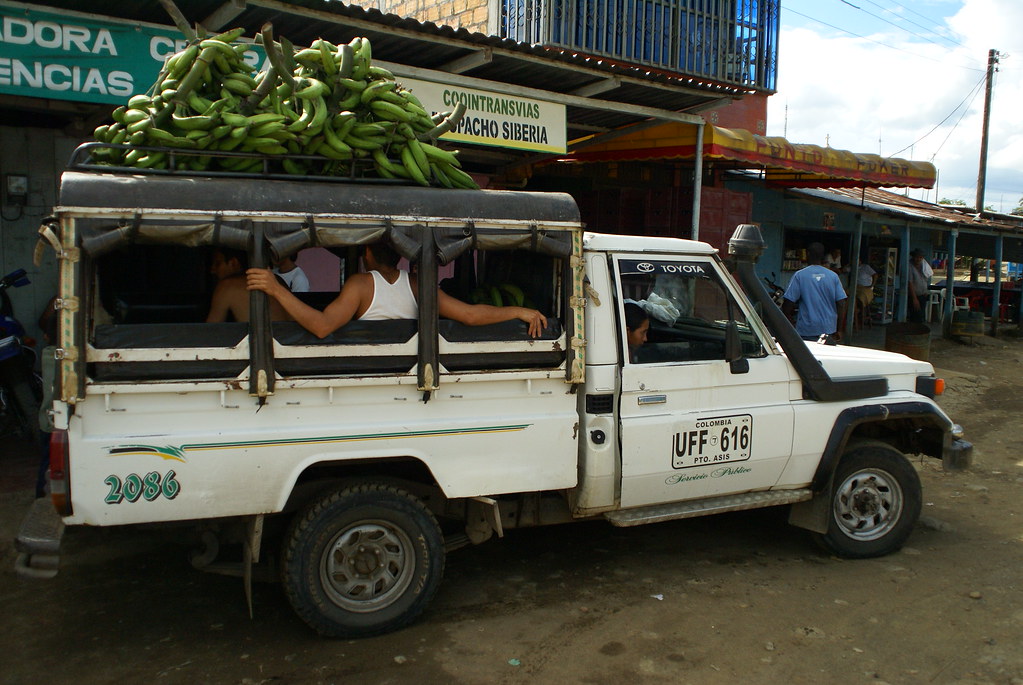
LAR: You have stated that this is perhaps the first time that an American jury has convicted an American corporation of contributing or encouraging human rights abuses outside of US territory. Do you think that this case might serve as a precedent in the future for other similar cases?
MS: This was not a criminal conviction. They found that Chiquita is civilly liable, but not criminally guilty. However, we do believe that this is the first time that an American jury has found a US company liable for human rights abuses outside the country.
In similar cases, including ones that we have litigated, we have gotten very close to trial and the company has decided to agree to a settlement of the claims rather than risk a jury trial. So, this is not the first time that victims have been compensated.
However, (the Chiquita case) shows that the companies who are facing these sorts of claims are wise to settle rather than to take their claims to trial.
As for precedent, it’s kind of a funny thing because in the American legal system, we refer to them as judicial opinions that make decisions about the law. A jury trial doesn’t make any decisions about the law; it simply makes decisions about who is responsible and how much money they have to pay.
Therefore, a different type of precedent is set here. It’s not like the ones that the Supreme Court is creating, but more so a factual precedent about the risk that companies face if they engage in this sort of behavior.
However, over the course of this litigation, there have been a number of judicial decisions that have created important precedent that would allow similar cases to be brought in the future. But that typically happens before the trial stage.
My hope is that the attention being placed on this verdict will lead companies to change their behavior. That would be the best outcome here because although no amount of money can bring back the lives that were lost, if we can prevent similar abuses in the future, that would be the best precedent.
LAR: After the verdict was announced, there have been a lot of people in Colombia calling for investigations of other multinational companies that have operated in Colombia. Do you see this happening in the future?
MS: At trial, Chiquita claimed that all other companies were doing the same thing, but they never submitted any evidence of this and as far as I know, every other company has denied making similar payments to the AUC. So, we don’t know the extent to which other companies were involved in similar activities.
Nonetheless, my impression is that over the past 15 years, there has been an enormous amount of resources put into a variety of transitional justice processes, including the Justice and Peace Process and the Special Jurisdiction for Peace and the Land Restitution Tribunal.
However, one of the things that has been overlooked is the business community’s support for paramilitarism. It has come up in some of the Justice and Peace cases, but I don’t think there’s been an enormous amount of attention placed on it, especially with respect to major companies like Chiquita.
That’s perfectly understandable because there’s so much to do. The fact that Colombia came out of the civil conflict at all, let alone as a reasonably well-functioning country with generally credible judicial processes, is astounding, given the level of violence in the 1990s.
I certainly would not fault anyone for the priorities in the transitional justice processes that have been going on, but I do think there has not been enough attention paid to business’ involvement in paramilitarism.

Image Source: Colombian Truth Commission.
LAR: At the beginning of our conversation, you mentioned how there’s still a lot to be done. What are some of the next steps?
MS: On this particular verdict, Chiquita has said that they will appeal. But beyond that, the families who are involved in this trial are only a very small fraction of the total number of claims that have been filed (against Chiquita) in the United States.
In fact, they represent less than 1% of the number of claims that have been filed. So our next step is to try more cases against Chiquita. This is not the end of their liability. This is only the beginning.
And they will keep going until either we try all the cases, which is practically impossible because there are thousands of them, or a global settlement agreement is reached that would solve all the claims.
LAR: How much time does Chiquita have to submit their appeal to the verdict?
MS: Chiquita needs to lodge their appeal within 30 days of judgment, and then it could take a year or more to get a decision. However, no judgment has been issued yet, so that clock is not running. I can’t say exactly how much time they will have.


